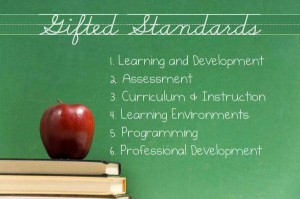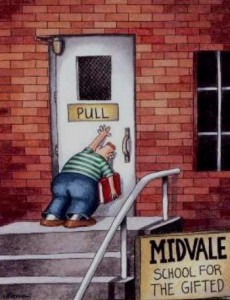National Association for Gifted Children
https://www.nagc.org/
This site is all about “Supporting the needs of high potential learners.” One of the most beneficial features is the “Pre-K-Grade 12 Gifted Programming Standards”, which were developed in 2010 and focus in diversity and collaboration. The standards are meant to guide programming development at the local level, and are grounded in theory, research and practice. They are grouped into six categories: Learning and Development; Assessment; Curriculum Planning & Instruction; Learning Environments; Programming; and Professional Development.

Florida Department of Education • Gifted Student Education
https://www.fldoe.org/bii/gifted_ed/
The state’s site is part of its Bureau of Curriculum and Instruction, and addresses State Laws and Regulations; Publications; Technical Assistance Papers; and Resources. It identifies special programs, gifted endorsement requirements, frameworks for K-12 gifted learners, services for secondary gifted students and more. The “Handbook for Parents of Students who are Gifted” is a 117-page PDF that should become the basis parental involvement in any Gifted student’s educational plan.
Florida Gifted Network
https://www.floridagiftednetwork.org/
The Florida Gifted Network is comprised of parents, educators and community members. The organization’s website brings together numerous resources, including advocacy information and a support network. Each section is brief, concise, and provides links to other pertinent websites. The advocacy page is especially important for parents and teachers who want to become involved in the political process of improving gifted education through state mandates.
District School Board of Pasco County
Exceptional Student Education (ESE) Department • Gifted Services
https://www.pasco.k12.fl.us/ese/gifted/
The district’s gifted resources page begins with five frequently asked questions, all which have answers directing site visitors to the “Gifted Handbook”. While the “Resources” listed are limited to links to other websites, the handbook itself does offer nine strategies for teaching gifted students, as defined by Susan Winebrenner in her book “Teaching Gifted Kids in the Regular Classroom”. This is beneficial not only for teachers, but for parents who want to support their child’s gifted education and provide solutions that will increase achievement.
National Research Center on the Gifted and Talented
https://www.gifted.uconn.edu/nrcgt/
The University of Connecticut is home to the NRC/GT, and as the name suggests, the site is loaded with research-based resources. Currently, the NRC/GT have a five-year plan in place, with a goal of truly understanding “what works in gifted education.” The “Parent Resources” section and the “Best-of-the-Best Enrichment Materials Database” are extremely thorough, providing a wealth of information for educators, parents and students.
Davidson Institute for Talented Development
https://www.davidsongifted.org/
Jan and Bob Davison, with Laura Vanderkam, are the authors of the 2004 book “Gifted Denied: How to Stop Wasting tour Bright Young Minds.” The non-profit Davidson Institute supports the educational and developmental needs of “profoundly gifted” students, those whose IQ and achievement scores are in the 99.9th percentile. The website offers links to information regarding a handful of programs especially for these under-18 students, including the Davidson Young Scholars, Davidson Fellows scholarships, THINK Summer Institute, Educators Guild, Davidson Gifted Database and The Davidson Academy.
SENG • Supporting Emotional Needs of the Gifted
https://www.sengifted.org/
Where other websites about gifted students focus on their education, SENG strives to support the “mental health and social competence necessary for them to be free to choose ways to develop and express their abilities and talents fully.” By providing information to families and communities, SENG hopes to influence positive development of gifted individuals. The site is very user-friendly, with highlights relating to the National Parenting Gifted Children (NPGC) Week and SENG’s annual conference, which is open to educators, parents, grandparents, mental health professionals, gifted teens, children and adults.
TEACHING RESOURCES
Hoagies’ Gifted Education Page
https://www.hoagiesgifted.org/
Hoagies’ is the “all things gifted” website, offering information and resources for parents, educators, kids, and the community. The “Gifted 101” tab has a very good overview of various topics, including identification, testing, education and programs, support, research and articles, and books. Hoagies hasn’t left out resources for gifted students, and they also have ready-to-use curriculum units for teachers. While it’s not the best-looking website, it is one of the most comprehensive.
Byrdseed Gifted Classroom Ideas
https://www.byrdseed.com/
Ian Byrdseed, who teaches self-contained gifted classes in California, hosts this site dedicated to sharing differentiated-instruction resources. With tabs focusing on language arts, writing, math, science, social/emotional and technology curriculum, educators will easily find what they need to teach their gifted students. A recent post featured popular middle-school and young-adult books with gifted female protagonists. Teachers can even sign up to have weekly updates and tips delivered to their email inboxes. This is a great teacher-to-teacher site!
ADDITIONAL EDUCATION PROGRAMS
Johns Hopkins Center for Talented Youth
https://cty.jhu.edu/
The Center touts itself as “a world leader in gifted education”, and their site provides grade-by-grade gifted information, as well as details about their programs and courses, and services and resources. CTY’s Talent Search, Summer Programs and Online Courses help exceptional learners grow to their full potential. “CTYers” often rank in the top of national academic competitions and many have made their mark on the world; one former CTY student founded Facebook while another co-created Google. Educators and parents who wish to encourage gifted students to reach beyond their classroom for inspiration and instruction would do well to consider CTY.
Duke University Talented Identification Program (TIP)
https://www.tip.duke.edu/
Duke TIP, like Johns Hopkins CTY, identifies gifted students and provides them with programs and opportunities to help them develop their academic talent. One of the better-known Duke TIP initiatives is the 7th-Grade Talent Search, which gives young gifted students the opportunity to take the ACT or SAT college entrance exams. Based on those scores, students then have opportunities to attend summer, academic year and distance learning programs. The “Digest of Gifted Research” and “Educational Opportunity Guide” are two excellent resources on this site.
USF Polytechnic • Central Florida Gifted & Talented Institute
https://www.poly.usf.edu/Offices/CFGTI.html
USF Polytechnic in Lakeland is the new home to a summer institute for gifted and talented students. The three-week, non-residential program topics this year are “Hot 2 Bot”, “Dr. Jekyll’s Lab”, “Extreme Green Adventure” and “CSI”. Space is limited to 105 students entering grades 7, 8 and 9, and the program costs $849. Mentorship opportunities are available to students entering 10th-12th grades who will help supervise and guide program participants while also learning from the course content.
Summer Institute for the Gifted
https://www.giftedstudy.org/
SIG is a program of the National Society for the Gifted & Talented (NSGT) and provides challenging three-week summer residential and day programs for gifted students. Academic, social, cultural and recreational opportunities combine to create engaging programs for students ages 4-17. Students can commute or live in a college dorm while taking courses in humanities, math, science, technology, visual and performing arts, and fitness and recreation. One of the hallmarks of SIG is that they take place on some of the country’s top colleges, from Bryn Mawr to Dartmouth, Emory to Vassar, Princeton to UC Berkeley.







